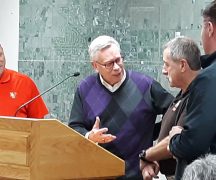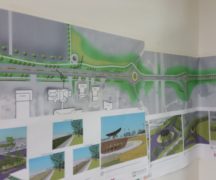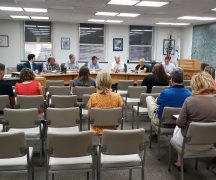By JAN LARSON McLAUGHLIN
BG Independent News
As Bowling Green Mayor Mike Aspacher prepped City Council for a busy year ahead, council members recycled the discussion of adding a sustainability committee.
“Prepare yourselves for a very busy 2021,” Aspacher said at the start of Monday’s council meeting. In addition to some big infrastructure projects, the city will also be working on some issues left unfinished in the wake of COVID-19, he said.
Last month, council member Bill Herald had asked the city administration for an update on efforts of the city’s Sustainability Advisory Committee.
At Monday’s meeting, Herald suggested that council study its committee structure – and consider the addition of a sustainability committee either as a standalone committee or combined with an existing committee.
Changes in the Bowling Green community are creating the need for this discussion, Herald said.
“We are becoming more attuned to sustainability as a community,” he said. And a committee should be considered. “ I’m afraid it will be lost otherwise.”
But others on City Council wanted to delay discussion until the city strategic planning session is held.
“The mayor just told us we’re going to have a lot of work in 2021,” council member Sandy Rowland said, suggesting that the time for adding to committees should be held until council sets its goals.
Council President Mark Hollenbaugh also didn’t want to rush the discussion.
“I think it’s something we could have an ongoing discussion about throughout the year,” Hollenbaugh said.
But Herald suggested council should act faster, especially since a pilot composting program is being planned in Bowling Green this year.
“I don’t want to be reactive,” Herald said. “So that we are poised and ready to handle” sustainability issues.
Council member Greg Robinette said he would like to hear from the city’s sustainability advisory committee before taking any action.
And council member Rachel Phipps said she would like the topic discussed when strategic goals are set.
“It’s up to council to decide where we spend our time,” she said.
Council member John Zanfardino noted council’s efforts in the past couple years to enact a plastic bag ban, to establish city composting, and to create a climate action plan.
“I think we’re a very sustainability-focused group,” he said. “Any day that we’re not thinking about sustainability is a poorly spent day.”
In July of 2019, former Mayor Dick Edwards asked City Council to consider tabling an ordinance that would have created a sustainability board. He instead suggested that the city first establish a sustainability advisory committee due to the complexities with setting up a volunteer board on sustainability issues.
In the fall of 2019, Edwards approved the creation of a Sustainability Advisory Committee. This committee was tasked with reviewing the city’s current approach to sustainability, taking an inventory of current sustainable practices, identifying obvious gaps/possible program additions and/or enhancements, and providing recommendations for how this topic is reviewed in the future.
A final report was requested to be submitted to the Mayor’s Office by October 2020.
But COVID put a real crimp in the committee’s progress. As a result, the committee requested an extension on the October 2020 deadline. Mayor Mike Aspacher granted the extension with the final report expected in the Mayor’s Office in March 2021.
Topics being considered by the sustainability advisory committee include:
Category 1: Energy, electric vehicles, transportation, LED lighting, efficiency/building upgrades, carbon footprint, alternative fuel, low impact development, water, and economic development
Category 2: Recycling, composting, waste management, upcycling, reuse, waste water, litter cleanup, and green purchasing.
Category 3: Reforestation/deforestation, prairie restoration, native plants, community gardens, species protection, food insecurity, green space, rain gardens, water reclamation, eco tourism, and bees/pollinators.





